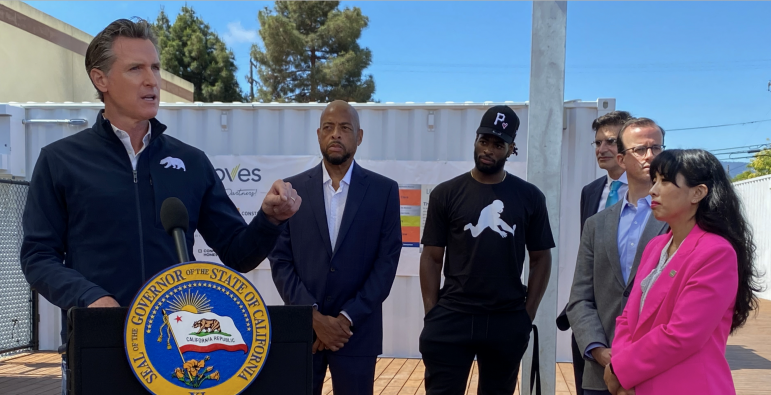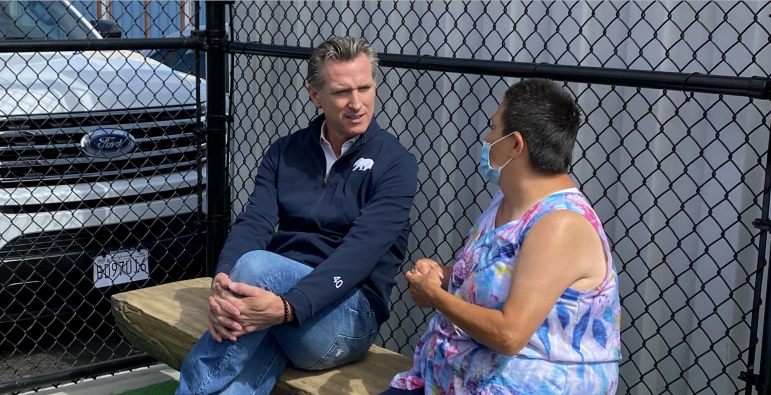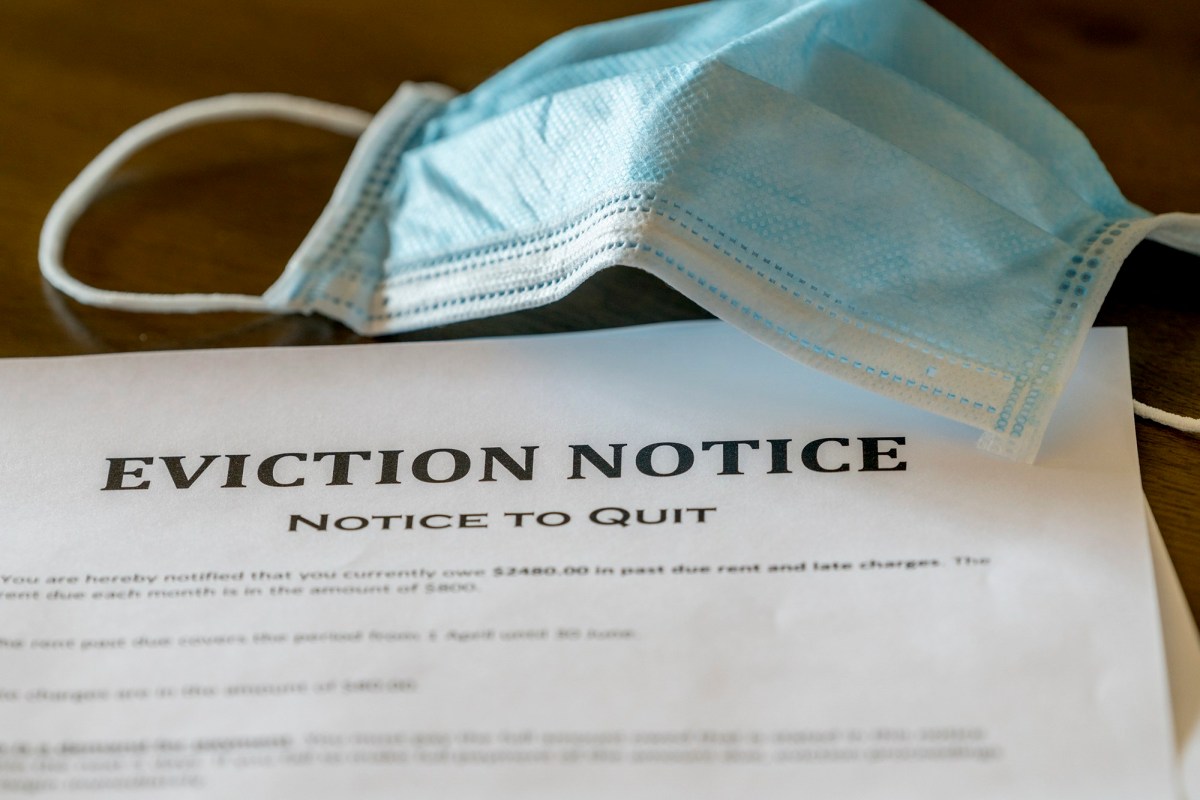Days before the state’s eviction moratorium was set to expire, Gov. Gavin Newsom announced “new and improved” rent relief and protections on Friday.
The new tenant protections extend the eviction moratorium until Sept. 30 and provide “anyone impacted by COVID-19” with 100 percent of back rent from April 2020, including water and electricity, until Sept. 30.
Newsom said changes have been made to make the application process more efficient and culturally competent, some of the main concerns from tenants and advocates. The application was also only available online and often took applicants hours to complete, both of which are resolved, Newsom said.
“Now, most folks are able to get the application done in a more culturally competent way, with more assistance support from (community-based organization) partners,” Newsom said.
There are also additional in-person opportunities and with the new updates, applications could be finished within an hour, Newsom said.
Another big change is that landlords do not need to sign onto the application process for renters to get 100 percent of rent back. This was a big concern for tenants, especially those with contentious relations with landlords, because without landlord sign-on, tenants could only get 80 percent of their rent paid by the state.
The extended protections come with an increased price tag, allowing more residents to apply for the program. An additional $2.6 billion was allocated for rent relief, bringing the state’s total investment to $5.2 billion, according to the governor’s office.

The move was celebrated by tenant advocates and many local leaders, but not all are happy. The California Rental and Housing Association, a group representing the rental housing industry, said the eviction moratorium caused “irreparable harm.”
“The new budget deal continues that harm by extending the moratorium,” said Christine LaMarca, president of the California Rental Housing Association. “While there is some recognition of this distress in the deal by providing 100 percent in rent assistance and requirements for the tenants to use the funds to pay rent, we are very concerned as to when this moratorium will actually end.”
The renewed tenant protections come at the heels of the state’s biggest investment to tackle homelessness in California history.
Newsom said his $12 billion proposal is laid out in the budget and poised for approval on Monday.
“This is an unprecedented commitment to homelessness and housing,” Newsom said at LifeMoves, an interim housing site in Mountain View. “We are blowing past the old limitations.”
With the $12 billion, Newsom seeks to provide 300,000 residents with housing security, 65,000 people with housing placements and create 46,000 new housing sites. He also hopes to eradicate family homelessness in the next five years. About $8.75 billion of the investment will be doled out over two years to create the new housing sites and “expand on the success” of Project Homekey, Newsom said.
Project Homekey was a multimillion-dollar investment by the state during the pandemic to local entities that created 6,000 affordable housing units. Cities and counties used the money to buy old motels and other buildings to convert them into housing sites.
“In this state, we have to do things radically differently and that’s exactly what this project represents symbolically and substantively,” Newsom said, pointing to the Mountain View site as a perfect example of unique solutions to homelessness.
A resident at the site, Adine Abeyta, shared tearful words with the governor about how she nearly fell into homelessness, and how the LifeMoves Mountain View site prevented her from doing so. Abeyta, a longtime Mountain View resident, was priced out of the city when her mother was murdered 20 years ago.

“I moved to Colorado and then got bit by the Colorado tick,” Abeyta said. She then moved back to California to live with her mom’s best friend, who later died of COVID-19. Meanwhile, Abeyta was suffering with a brain infection caused by the tick. She suffered three strokes and fell into a 38-day coma.
“When I woke up, we were in a pandemic,” she said.
Abeyta said that without the interim housing site, she would’ve without a doubt been homeless, and to no fault of her own, so she was grateful for the support from the state and city.
Mountain View Mayor Ellen Kamei said the interim housing site, which houses 124 people, including children and families, was built in a record-breaking six months.
“I worked in local government,” Assemblymember Marc Berman, D-Menlo Park, said. “You can’t even get a bench built in six months.”
Berman and Kamei were one of the many that joined Newsom on Friday, including state Sen. Josh Becker and Pittsburgh Steelers running back and Bay Area native Najee Harris.
“Me and my family we were all homeless moving all around the Bay Area,” Harris said. “We were evicted multiple times and had to stay in homeless shelters … so I know how it feels.” Harris emphasized that projects like these are essential and called on those who can give back to do so.
